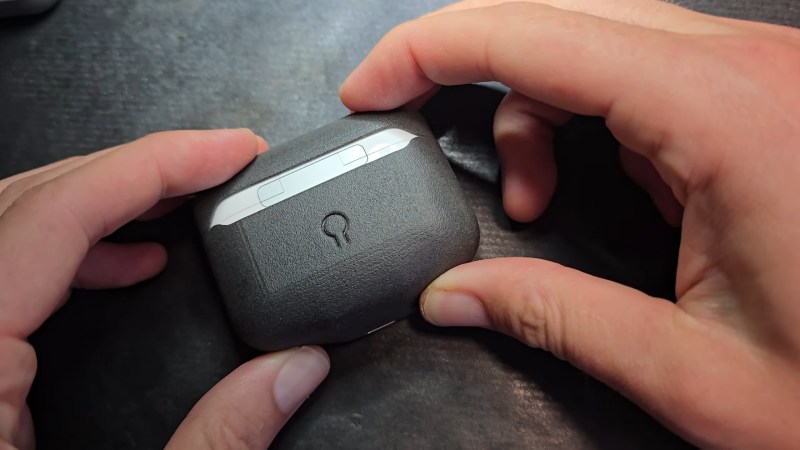While the death of Apple’s Lightning Connector can’t come soon enough, swapping the ports on their products as “category-defining innovations” seems a bit of a stretch. [Ken Pillonel] has designed a set of streamlined, repairable, USB-C adapters for the AirPods, AirPods Pro, and AirPods Max that show Apple what innovation really means.
If you’ve followed [Pillonel]’s work in the past, you’ll know he’s as a big a fan of repairability as we are here, so this isn’t just a cheap knockoff dongle that’ll be in the trash as fast as your counterfeit wireless earbuds. In the video below, he walks us through his quest start-to-finish to design something compact that gives you all the joys of USB-C without the pain of buying a whole new set of headphones.
We like the iteration on the connector, showing that flexible circuits can do some amazing things, but are still subject to failure at extreme angles. Using a combination of 3D printing, a cool robot sandblasting machine, a pick-and-place, and some old fashioned hand soldering, [Pillonel] treats us to a polished final product that’s put together with actual screws and not adhesive. His designs are all open source, so you can DIY, or he sells finished copies in his shop if you want to give one to your less-than-techy relatives.
[Pillonel] may seem familiar as he’s the guy who added USB-C to the iPhone before Apple and redesigned the AirPods Pro case for repairability. Apple is getting better about repair in some of its devices, for sure, but unsurprisingly, hackers do it better.
















If you’re buying new, you might want to consider not rewarding Apple for being Apple and try
https://shop.fairphone.com/fairbuds
I just get the $10 one from Amazon. They work fine for my needs.
Crap sound quality and ux tho
cool
That pick-and place he uses is the Stephen Hawes’ “opulo”/”lumen” design???
2017 pixel buds called, asking if everyone is using the same usb-c as they did. Of course they hung up disappointed 😔
Wireless charging is all you need, forget these hacks and just tough them out until the batteries are capout.
In this context, one should not forget that Apple did not choose Lightning to replace the 30-pin dock connector out of pure malice, but because the further development of USB at the time was not progressing quickly and predictably enough.